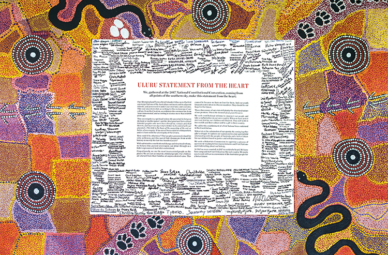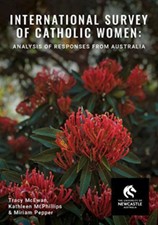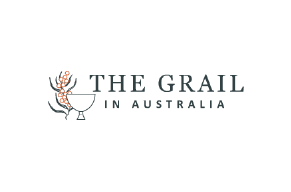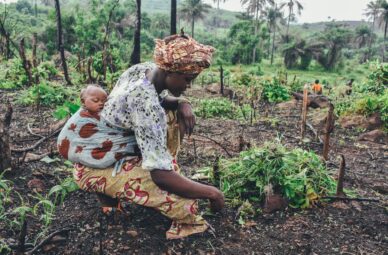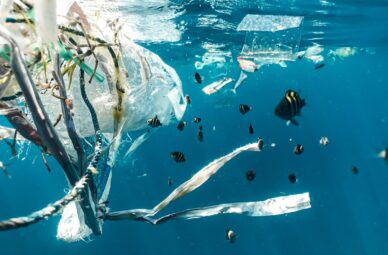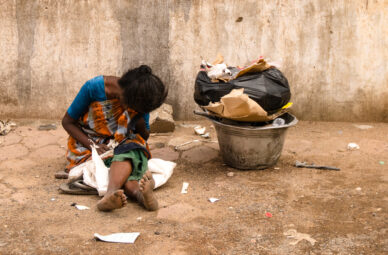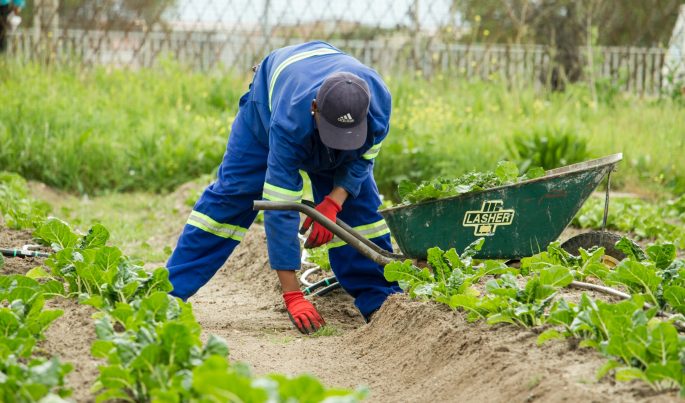
Time is Running Out…
December 9, 2021Time is running out for a new agricultural model for the global South. Climate change is posing immediate threats to humanity and indeed to all living organisms on the planet. Extreme weather events are being experienced across the globe, along with other environmental stresses such as rising water levels or falling water tables, desertification and worsening sanitation. Industrial agriculture requiring chemical inputs is both the cause and victim of these changes. Cultivation patterns such as mono-cropping, with heavy reliance on groundwater and chemicals, have reduced the food sovereignty of poor countries and increased environmental problems.
This accumulation of events has affected food security and caused more severe and widespread hunger. The number of hungry people in the world started to increase in 2015 - the year when zero hunger was declared a Sustainable Development Goal of the United Nations. The very first Food Systems Summit met (virtually) on September 23 this year. It was called to respond to the following needs:
- to ensure more sustainable food production;
- to feed more people;
- to enable farmers and producers to make a decent living from agriculture.
Reducing hunger and malnutrition around the world and managing risks from climate change are also key global challenges.
The Summit’s biggest concern should have been how to make the necessary changes to our food production, distribution and consumption patterns to adapt them better to nature and make them more resilient. There is a growing fear among many that, instead of recognizing the need for truly transformative strategies, corporate-orientated agriculture models, which make worse present problems, will be further endorsed and supported.
The Food Systems Summit has been mired in controversy. The Rome-based UN bodies – the Food and Agricultural Organisation, the World Food Program and the International Fund for Agricultural Development – have been sounding the alarm on the inequality within global food systems and their lack of sustainability, but these organisations were effectively sidelined. Instead, the World Economic Forum, an unofficial platform essentially representing global corporate interests, was made the partner.
As well, the Summit was led by a UN special envoy, Agnes Kalibata, President of the Alliance for Green Revolution in Africa (AGRA), which has been criticised for pushing a particular strategy in Africa without transparency or accountability. Fears surfaced that the Summit could simply become an opportunity for more fundraising for AGRA, which will soon runout of money, but has achieved little in its 15 years of existence. AGRA was launched in 2006 by the Bill and Melinda Gates and the Rockefeller Foundations. It was designed along 1950-60s ‘green revolution’ lines, ie, mono-cropping based on a combination of high-yielding commercial seeds, synthetic fertilisers and chemical pesticides and requiring lots of irrigation to increase yields per acre. In the Asian region, this model produced, at best, mixed outcomes over the medium term and was associated with major ecological problems. But it certainly benefits the global agribusinesses that provide the seeds and fertilisers and pesticides and control the global distribution of crops. This may be a reason why this model was pushed on Africa and has persisted there. AGRA has provided around $1 billion to 13 countries, and several recipient governments have contributed many multiples of that amount in seed and fertilizer subsidies – totalling well in excess of funding devoted to agro-ecological cultivation.
There is little to show for all this spending. AGRA initially aimed to double the yields and household incomes of 20 million small-scale African farmers by 2020; and to halve food insecurity in 20 countries through productivity improvements. It subsequently scaled-down its goals, reported no actual outcomes and the Gates Foundation has not revealed the results of an audit it is said to have conducted. An independent academic study found little evidence of significant increases in small producers’ productivity, incomes or food security. Instead, the number of hungry people in AGRA countries apparently increased by 30% in the first 12 years of its operations. According to the UN, severe hunger has increased by 50% in sub-Saharan Africa since AGRA was founded.
This is why farmers’ associations, civil society and faith groups across Africa have come out against the promotion of AGRA and demand that funding go towards agro-ecological strategies based on small farmers.[1] This would be more equitable and sustainable over time. Major experts on food issues who have worked closely with the UN system have warned that the Summit could erode the UN’s public sup-port and legitimacy. Several civil-society and farmers’ groups boycotted the Summit because of these concerns.
It seems obvious:
- that the basic premise of a Food Systems Summit in today’s world must be that everyone should have access to sufficient nutritious and affordable food, and so does not go hungry or fall into unhealthy food consumption practices;
- that this food is produced in sustainable ways, which take into account the limitations and growing constraints imposed by nature and do not create future ecological damage; and
- that small farmers, who do the bulk of cultivation in most of the developing world, are able to sustain themselves and their families and earn reasonable incomes through this activity.
Clearly, the Food Systems Summit must move away from promoting more of the same failed model such as that of AGRA. Humanity cannot keep on blowing up the few chances it has to save itself and this planet.
Source: Jayati Ghosh, ‘Time is Running Out for a New Agricultural Model for the Global South’, in Social Europe, 20th September 2021. Condensed by Mary Boyd.
[1] A Declaration of African Civil Society and Faith leaders was sent to the African Union (AU)– European Union (EU) Foreign Ministers’ Conference, October 2021. This meeting of Foreign Ministers in Kigali, Rwanda, was held in view of an AU EU Summit in February 2022 in Brussels, Belgium. The Declaration, entitled Our Land Is Our Life, is a heartfelt, powerful statement. Recommended reading. See posting by the Africa Europe Faith and Justice Network (AEFJN). www.aefjn.org




